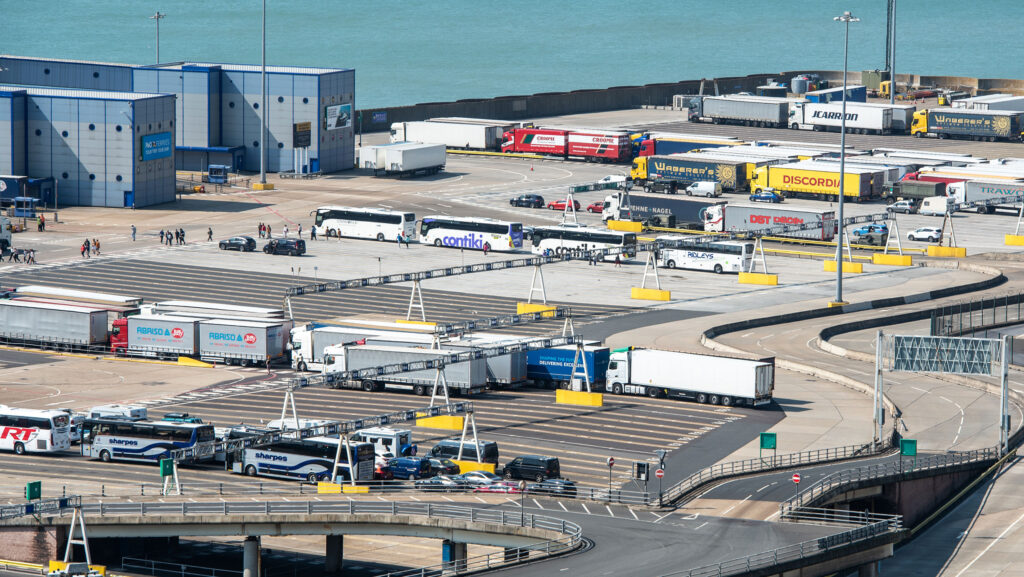UK-EU deal to ease red tape on agricultural exports
 © Adobe Stock
© Adobe Stock The UK and EU have struck a landmark trade and co-operation agreement that promises to reset their post-Brexit relationship – with major implications for the food and farming sector.
The agreement, which was finalised ahead of a high-level summit in London on Monday 19 May, includes a long-term extension of EU access to British fishing waters in return for easing the red tape on food and agricultural exports.
In practical terms, this means UK farmers and agri-food businesses could benefit from faster, simpler border checks and reduced costs when exporting to the EU.
See also: Editor’s View: So far, trade deal detail leaves me shrugging
Food safety and animal welfare standards
Under the agreement, the UK has committed to align with EU food safety and animal welfare standards, a move ministers say reflects the already similar rules on both sides and will support smoother trade in meat, dairy, and fresh produce.
British officials argue that this alignment will help cut delays and bureaucracy, allowing goods to flow more freely into the EU – the UK’s biggest agri-food export market.
Speaking at a press conference in London on Monday 19 May, leaders from both sides hailed the UK-EU reset deal as a major step forward.
European Commission president Ursula von der Leyen confirmed that the UK and EU had agreed to work towards a common sanitary and phytosanitary (SPS) arrangement.
She said the deal would bring “more certainty, more stability” for food exporters on both sides of the Channel and reduce trade friction.
Prime minister Sir Keir Starmer described the agreement as a “win-win” for both sides.
“The SPS deal will slash costs and red tape for our exports into the EU,” he said. “It will lower food prices at supermarkets, offer more choices and put more money into people’s pockets.”
After a 21% drop in exports and 7% drop in imports seen since Brexit, Sir Keir said the UK will also be able to sell various products, such as burgers and sausages, back into the EU again, supporting these vital British industries.
In a statement, the UK government said some routine checks on animal and plant products will be removed completely, allowing goods to flow freely again, including between Great Britain and Northern Ireland.
The deal is expected to eliminate export health certificates, veterinary checks, and common user charges for food, farming, and fish exporters.
EU ‘surrender’
However, the deal is not without controversy. Critics in the Conservative Party and Reform UK say it amounts to a “surrender” of sovereignty, as Britain will now dynamically align with future EU regulations – potentially without a seat at the negotiating table.
The deal’s implications for the UK government’s plans to allow commercial cultivation of gene-edited crops in England remain uncertain, particularly as the EU continues to review its own gene editing regulations. Farmers Weekly has asked the UK government to provide clarity on this subject.
The most contentious aspect was fishing.
In exchange for the agreement on easier checks for food, animal and other agricultural products, known as SPS controls, Britain has agreed to extend access to EU fishing fleets until 2038, trebling the original offer of four years.
However, the agreement may pave the way for greater co-operation in agricultural research and rural development, including potential re-entry into EU programmes such as Horizon Europe.
No farm labour changes
The deal does not address one of the most pressing challenges facing UK agriculture – the shortage of seasonal workers needed to plant, harvest, and process crops.
But the UK government insists there will be no return to freedom of movement.
Nick Thomas-Symonds, the UK’s lead negotiator, called the deal “an historic day” that opens a new chapter with the EU and “delivers for working people on jobs, bills and borders.”
Deal sparks mixed reactions in agriculture
The UK-EU reset deal has drawn varied responses from the agricultural sector.
NFU president Tom Bradsaw welcomed the government’s move to tackle the significant costs, burdensome paperwork and additional checks faced by farm businesses in order to trade with partners on the continent.
“The government has clearly listened to these concerns. With the scope to remove export health certificates and cumbersome controls at the border, this deal will deliver many benefits for agri-food exports to the EU,” Mr Bradshaw said.
Country Land and Business Association president Victoria Vyvyan raised concerns over sovereignty and the fishing industry, warning about the European Court of Justice’s oversight.
“Tying us to an agreement that involves European Court of Justice oversight is deeply concerning,” she said.
The AHDB welcomed the deal’s potential to reduce trade friction, particularly for SMEs.
“Any agreement that lowers trade friction, smoothing trade between the UK and the EU, would be good news for UK agricultural exporters,” said AHDB head of economics Sarah Baker.
Dairy UK also praised the deal, especially the common understanding on sanitary and phytosanitary (SPS) regulations, calling it “incredibly valuable for the dairy and agri-food sector,” according to Dr Judith Bryans.
However, grassroots farming organisation Farmers To Action criticised the deal as a “surrender” to the EU, claiming it betrayed the Brexit promise.
“Brexit promised control. Starmer delivers compliance,” they said.
